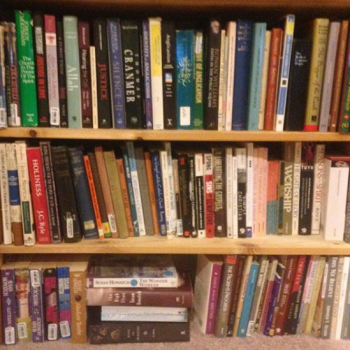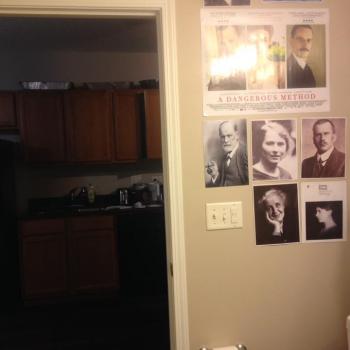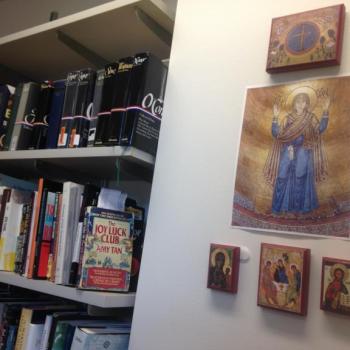![The skyline of Richmond, BC, Canada taken from Aberdeen Station. - by Grotskiii, February 2013 (Richmond_BC_Skyline-1.jpg) (CC BY-SA 3.0 [https://creativecommons.org/licenses/by-sa/3.0/deed.en]), via Wikimedia Commons](https://wp-media.patheos.com/blogs/sites/721/2014/08/Richmond_BC_Skyline-1-1024x354.jpg)
I started this primer over a month ago. Then I got sidetracked. I’m quite unapologetic about that. My distractions were very interesting developments in the democracy movement in Hong Kong and some funny evangelical megachurch business in Seattle.
Since it’s been so long, let’s spend today reviewing.
This Big BC Politics Primer is motivated by the need and desire to get to the bottom of what drives BC politics. This is more difficult that one might expect. That’s because of the constant temptation to read BC politics through the lenses of American politics. As I said in my first post, I sympathize greatly because I am an Asian American who grew up in the San Francisco Bay Area, which is arguably the capital of Asian America. BC has a lot of Asian Canadians who seem to be doing a lot of the same things as Asian Americans, so it’s easy to think that what’s going on in BC is analogous to everything else in America.
It is not.
As I asserted — not argued (the primer, as it unfolds, will flesh out the argument, so there is no argument yet) — BC politics is driven by the private consensus on steroids. For those who are new here, the private consensus is my way of describing the implicit social agreement that the more that things are done privately and in-house, the better our society will be.
One could say that the private consensus also rules American politics. But there is a difference. Unlike neoliberal America, BC makes political pariahs of people who impose their private agendas onto public politics. If you will permit me a generalization, it seems to me that in America, everyone is simply assumed to have their own private agendas: of course people are privately motivated (duh!), but if you let people have their self-interested way, everybody will work harder and push society in the right direction. The American media constantly tries to reveal the gossip about each person’s private agendas in an effort to use those private politics to further the public good.
It’s not like that in BC. That’s because there’s a sense that a private agenda is inimical to the public good. This means that the media constantly tries to reveal the gossip about each person’s private agendas in an effort to discredit everyone.
That version of the private consensus, I am asserting, is what has made the political situation in BC the way it currently is.
What is the current political situation in BC? — you might ask, especially if you are an American who, as they always say, ‘is not familiar with the situation in Canada’ (drawl included when pronouncing ‘Canada’). Isn’t it some socialist paradise with free health care? (No, I even have to explain to American Border Patrol agents, we pay something called the Medical Services Plan as a monthly bill.) Isn’t it just a part of America that’s long overdue for annexation? (You wish.) Oh, oh, I know, isn’t the mayor on crack? (No. That’s another part of Canada.)
What’s the situation? you ask. Well. Let me tell you all the ways. (I’m not going to post links to news sources on many of these because, well, we’ll be covering a lot of these in the upcoming posts.)
- There is a teachers’ strike. It’s complicated. The issues have been festering for years between the teachers’ union, the British Columbia Teachers’ Federation (BCTF), and the BC government, especially when there has been a Liberal government. That’s complicated too because the ‘Liberal’ government in BC is not a progressive party; it believes in the free market an an austerity budget, which makes it politically conservative. This is further complicated because the way that students and parents have experienced the strike just makes the whole thing about strikes feel annoying — and paralyzing because what’s at stake is the students’ future college educations. That said, students are also taking their political agency, most notably in a recent walkout, and some even support the teachers. Complicated. But that leads to…
- Sex. There is a great deal of concern about parental rights because concerned parents are afraid that the public school system is basically taking over the job of parenting. This was amply demonstrated in a recent fight over a transgender policy at the Vancouver School Board — parents accused the school board of planning not to inform them if their kids were transgender — but this discourse of parental rights has gone way back into the 1990s. What’s even more complicated is that it seems like a bunch of the concerned parents are Chinese Christians…
- There’s a huge debate about race. More precisely, there’ s a huge debate about whether race should even be talked about in BC. That’s because those concerned parents — the Chinese Christians — are part of an even larger discourse about housing. One of the major concerns in Vancouver, and in other parts of BC, is that the cost of housing has skyrocketed due to offshore investment. Some say that talking about that offshore investment can lead to racism, especially when it’s from China. Others complain that that talk about racism is a way of conveniently shutting down conversation about important issues. At the same time, there’s yet another layer of racialization, as Indo-Canadian youth are treated almost de facto in the BC discourse as involved in gangs, which is further compounded by a spate of gang violence experienced in BC, which means that there’s yet another layer of migrants who are scapegoated…
- That debate about race has to do with classic Asian Canadian issues too. More precisely, it’s a debate about whether the BC government should apologize for past historical wrongs, like the Chinese head tax. The problem is that the apology strategy from the BC Liberals got leaked as a ‘quick wins’ tactic to consolidate Chinese votes — and there was a concurrent attempt to do something for Indo-Canadians with the historic Komagata Maru incident — so there’s been this huge firestorm over whether apologies for historical wrongs are even productive. But this is even further complicated by the fact that there are so many different kinds of Asian Canadian communities with varying connections to the BC historical past, which means that while some accuse Chinese and Indo-Canadians of wanting an apology and distracting from ‘the real issues’ (which always seem to relate to property), some real Chinese and Indo-Canadians are like, Who, me? But communities of colour are not the only ones with this historical problem. That’s because of something called…
- Secularization. Because of folks like Mark Driscoll and the American discourse propagated by Patricia Killen and Mark Silk on the Pacific Northwest as a ‘none zone,’ it might surprise people that there is such a thing as Canadian secularization that’s not in Quebec (French Canada). But as Patricia Roy shows, if there was a historical discourse in BC called ‘A White Man’s Province,’ there were also certainly historical Christian churches here — Anglo-Canadian ones, to be exact — that had various views toward communities of colour. The trouble is that with the advent of Canadian multiculturalism and a revised discourse in BC about immigration also came both secularization (i.e. BC people who grew up in the church aren’t connected to it anymore) and newer European migrations (i.e. people who came here who don’t have any connection to the BC historical past). That said…
- Anglicanism still matters. For some reason, despite dwindling numbers and a massive church split in the Diocese of New Westminster (the Vancouver diocese), the Anglican Church still matters a lot in BC’s historical memory, which means that it’s still regarded as a leader and when it splits, it feels like a divorce. The split happened over all the things that I mentioned above — sex, migrations, secularization. Also, there is a great deal of debate over how much religious freedom specifically Christian organizations should have to propagate their views, especially about sexuality, which has led to lawsuits, media discussions, professional organization dramas, etc. But a new thing has also come up…
- Indigenous sovereignty politics. It turns out that because of the legacy of white BC and white Canada, there’s a great deal of white guilt over the past, which has led to a big debate over what people should be doing about it. This is also complicated by the fact that in addition to the criminalization of Indo-Canadian youth, there’s also the criminalization of indigenous people as well, with reports on their homeless population, reservation conditions, propensity to sit tight on lands claimed by the government or private parties, and tribal band corruption. On the one hand, some mainline Protestant and Catholic churches have acknowledged their historical complicity in the residential school system during the Truth and Reconciliation Commission. On the other hand, some argue that indigenous issues are not historical — they are very present-day issues, having to do with how land is distributed, how indigenous peoples are treated, how tribal bands are run…which takes us to…
- The big oil pipeline. Recently, the Supreme Court of Canada ruled that indigenous people have a right to their historic lands. But this is contested because there’s a lot of money to be made on a big proposed oil pipeline running through indigenous territories that will transfer oil over to Asia (which makes Asia the scapegoat again too). But that also means that there are…
- Ecological politics. It’s the Pacific Northwest! But as we talk about indigenous issues, there are also green issues to talk about too because indigenous politics has also been tied to whether the BC government is treating the land right. Moreover, there has been lots of talk about Vancouver becoming a green city model for urban planning. But all of this fancy-schmancy ecological politics aside, there is another ecological thing, and that’s…
- The Agricultural Land Reserve. In the 1970s, the BC government created a policy to lock up certain lands for exclusive agricultural use that could not be developed; it has to be used to produce food. There were several reasons for this. One way to stop private developers from developing all the land in BC. The other was to make sure, in case relations with the United States went sour, BC could still be fed because it would grow its own food. This policy has also come under contestation now, as some argue that there is now more demand for housing, which has farmers up in arms because their livelihood is at stake, the land is at stake, and the food is at stake. Plus, the point of growing food locally also has to do with poverty alleviation, as well as the government keeping its word about food security…
- There is a good deal of accusation about government corruption. This is not just one party. It’s all the parties, from Bill Vander Zalm’s fuzzy property investments in the 1980s to the New Democratic Party’s investments in the BC Ferries and the casinos in the 1990s to the Liberal government ramming through a Harmonized Sales Tax (HST) in the 2000s. There’s plenty of blame to go around for all the different parties and why they can’t be trusted.
All of that is just the tip of the iceberg, and I’ve probably missed a thing or two (if you have anything to add, message me). We’ll dig into all of these things one by one, which means that you can bet that this series will be very lengthy. Also, I’m sure that much of this is conditioned by my being Chinese North American and having lived in Richmond for ten years, but I’m prepared to defend my hidden assumption that Richmond is a brilliant case study through which to understand all of BC politics…
But for now, there are some big themes, and for your convenience, I’ll list them out again in bullet-point form:
- Property, investment, and the problem of private agendas in public politics
- The criminalization of race, migration, and indigeneity
- The not-quite secularization and the historical memory of Anglo-Christianity
- Ecology and agriculture
It’s complicated, but remember what I said holds it all together: the private consensus on steroids. Or as they say in Once Upon a Time, ‘Welcome to Storybrooke.’
Strap on your seatbelts, then. Tomorrow, we’re going to start with sex.











